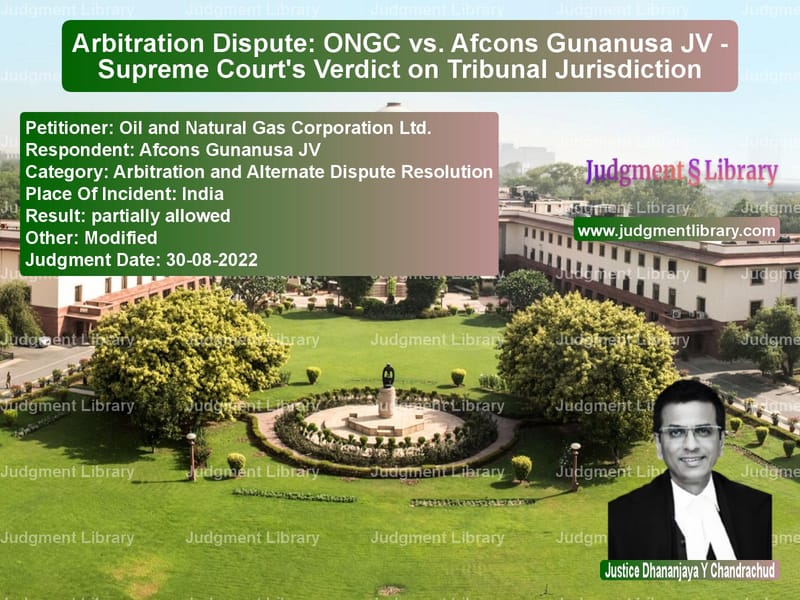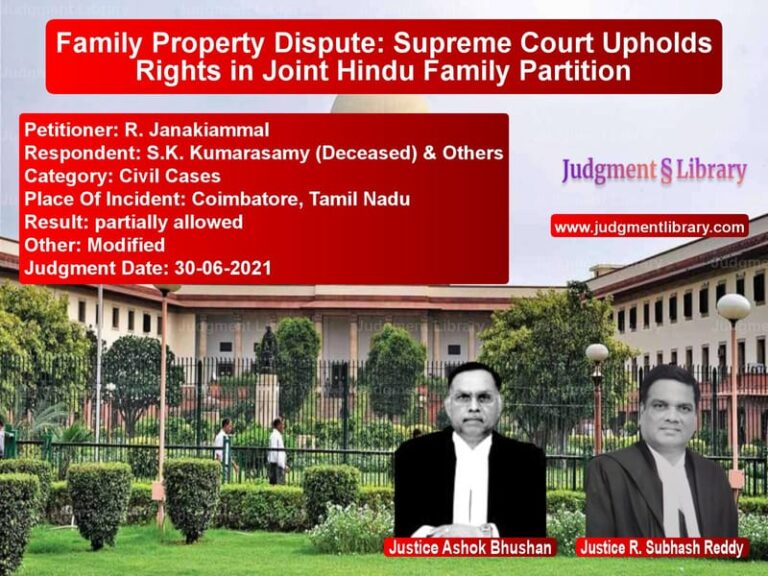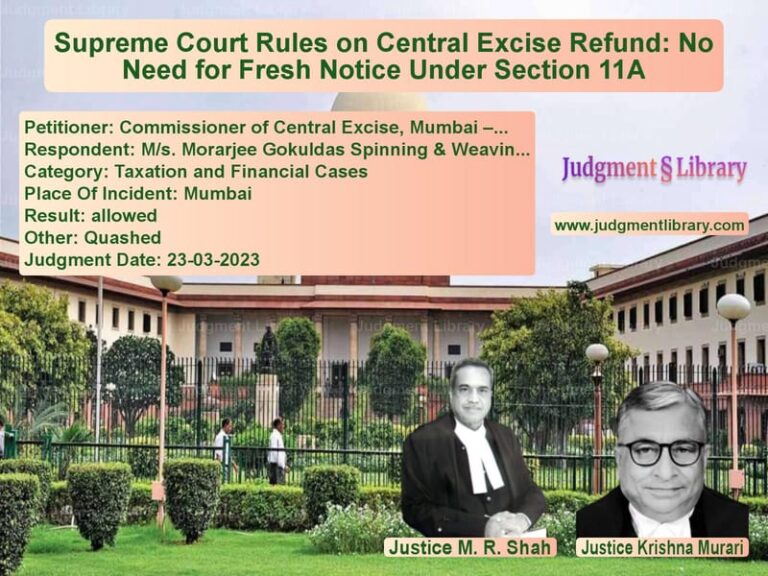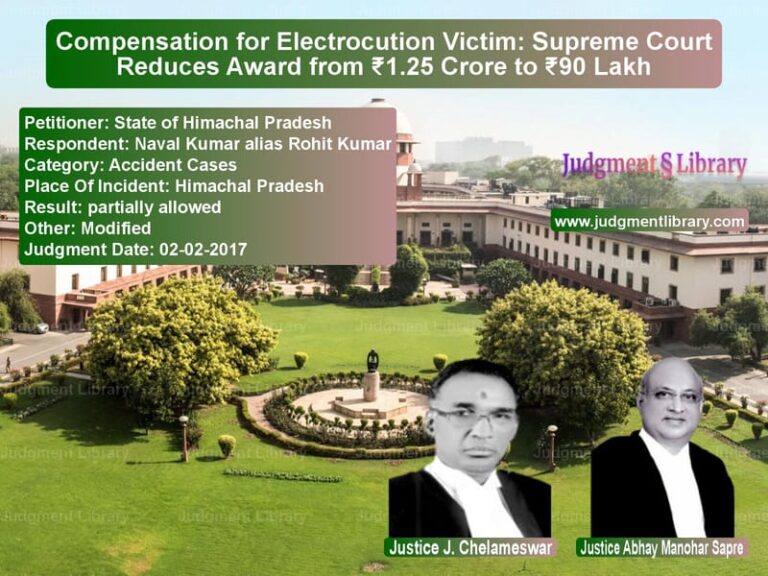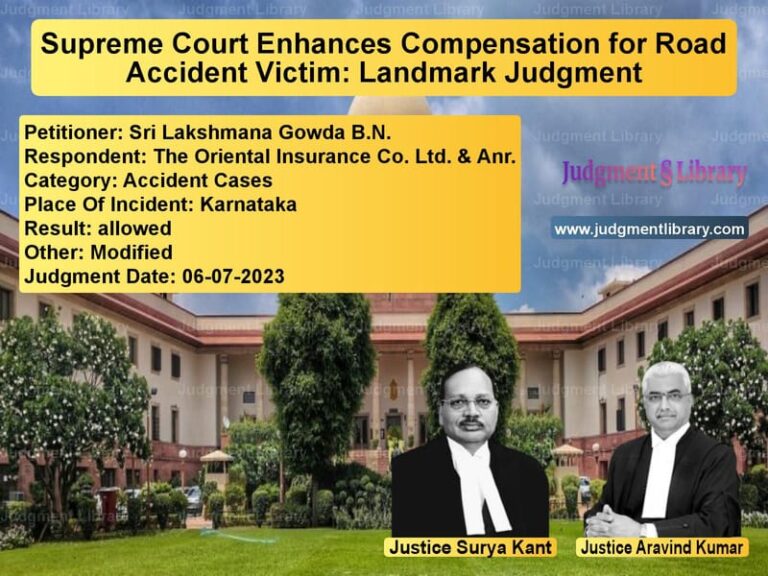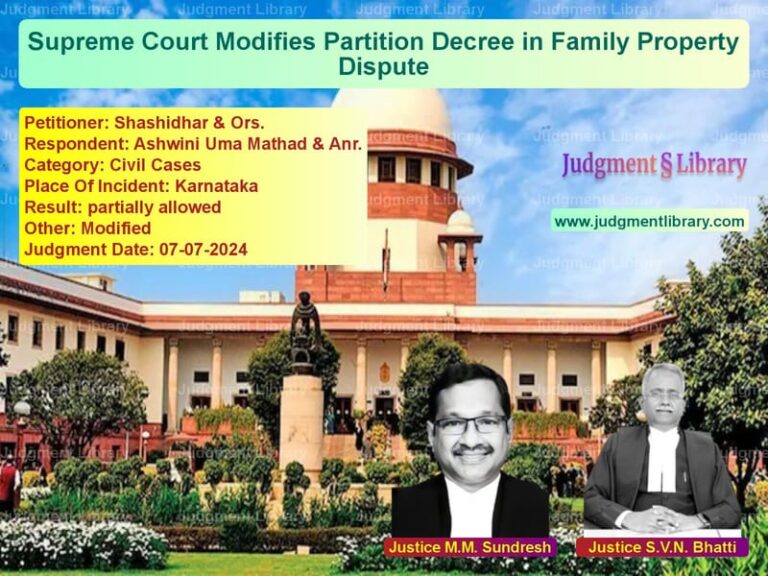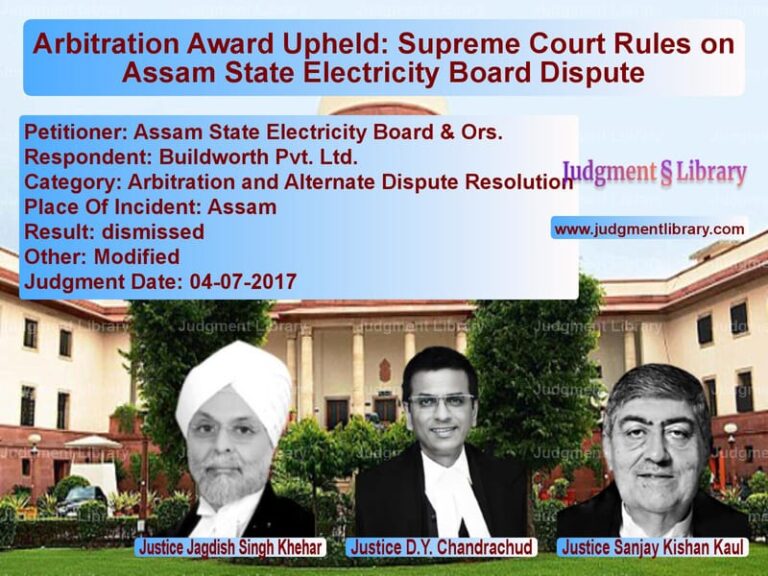Arbitration Dispute: ONGC vs. Afcons Gunanusa JV – Supreme Court’s Verdict on Tribunal Jurisdiction
The case of Oil and Natural Gas Corporation Ltd. vs. Afcons Gunanusa JV is a landmark arbitration dispute that revolves around contractual disagreements, the determination of arbitration tribunal jurisdiction, and the enforceability of tribunal decisions under the Arbitration and Conciliation Act, 1996. The Supreme Court of India was called upon to decide whether the arbitral tribunal had exceeded its jurisdiction in determining the fee structure and whether the award should be modified.
Background of the Case
Oil and Natural Gas Corporation Ltd. (ONGC) entered into a contractual agreement with Afcons Gunanusa JV for offshore construction projects. Disputes arose between the parties regarding certain financial claims, including costs incurred and the arbitration fee structure adopted by the tribunal. ONGC challenged the tribunal’s decision, contending that it had imposed fees and awards that were not aligned with the contractual agreement.
The matter escalated, leading ONGC to approach the Supreme Court, seeking relief under the Arbitration Act, 1996. ONGC argued that the arbitration tribunal had misinterpreted its jurisdictional scope and imposed an unfair financial burden by adopting an arbitrary fee structure. On the other hand, Afcons Gunanusa JV defended the tribunal’s ruling, asserting that the decision adhered to international arbitration principles and was agreed upon in the arbitration agreement.
Petitioner’s (ONGC) Arguments
- ONGC contended that the arbitration tribunal had misinterpreted key contractual provisions, resulting in an unjustified financial burden.
- The company claimed that the fee structure adopted by the tribunal exceeded the agreed terms under the arbitration agreement.
- ONGC argued that the tribunal did not follow the standard practices established under the Arbitration and Conciliation Act, 1996.
- ONGC’s counsel emphasized that “A tribunal cannot impose an arbitration fee structure beyond what is contractually agreed upon by both parties.”
Respondent’s (Afcons Gunanusa JV) Arguments
- The respondent defended the arbitration award, asserting that the tribunal’s decision fell within the agreed arbitration mechanism.
- Afcons Gunanusa JV contended that ONGC had agreed to the arbitration terms and that the tribunal followed global best practices in arbitration proceedings.
- The company’s legal team argued that “The tribunal acted within its jurisdiction, and the attempt to challenge the award is an afterthought to evade financial obligations.”
Key Judicial Observations
Justice Dhananjaya Y Chandrachud, delivering the judgment, made critical observations:
“Arbitration proceedings must adhere to established legal principles, and any deviation from statutory provisions must be justified.”
“A tribunal cannot unilaterally impose fee structures that are inconsistent with contractual agreements.”
The judgment provided a comparative analysis of arbitration fee structures across different international arbitration organizations. The court highlighted that the legitimacy of arbitration proceedings depends on transparency, fairness, and adherence to the original agreement between parties.
Final Verdict
After careful deliberation, the Supreme Court ruled in favor of ONGC, holding that the arbitration tribunal had indeed exceeded its jurisdiction in determining the fee structure. The court partially set aside the arbitration award and established new guidelines for arbitrators’ fee determinations in future cases.
Implications of the Judgment
The ruling sets a significant precedent for arbitration proceedings in India, ensuring compliance with statutory provisions and contractual agreements. The judgment highlights the Supreme Court’s role in balancing party autonomy and regulatory oversight in arbitration. It reaffirms the principle that arbitration tribunals must adhere strictly to pre-agreed terms and cannot impose additional financial burdens on parties.
Impact on Arbitration in India
- The ruling reinforces the importance of transparency in arbitration fee structures.
- It prevents arbitration tribunals from exceeding their jurisdictional limits.
- It ensures that contracts remain the guiding principle in arbitration fee determination.
- The judgment provides a strong precedent for future arbitration disputes, promoting legal clarity.
Conclusion
The Supreme Court’s decision in this case strengthens arbitration jurisprudence in India. By setting aside the tribunal’s fee structure, the judgment protects parties from arbitrary financial impositions and ensures that arbitration remains a fair and predictable dispute resolution mechanism. The ruling serves as an essential legal precedent for ensuring compliance with arbitration agreements while upholding statutory provisions.
Petitioner Name: Oil and Natural Gas Corporation Ltd..Respondent Name: Afcons Gunanusa JV.Judgment By: Justice Dhananjaya Y Chandrachud.Place Of Incident: India.Judgment Date: 30-08-2022.
Don’t miss out on the full details! Download the complete judgment in PDF format below and gain valuable insights instantly!
Download Judgment: oil-and-natural-gas-vs-afcons-gunanusa-jv-supreme-court-of-india-judgment-dated-30-08-2022.pdf
Directly Download Judgment: Directly download this Judgment
See all petitions in Arbitration Awards
See all petitions in Dispute Resolution Mechanisms
See all petitions in Arbitration Act
See all petitions in Institutional Arbitration
See all petitions in Judgment by Dhananjaya Y Chandrachud
See all petitions in partially allowed
See all petitions in Modified
See all petitions in supreme court of India judgments August 2022
See all petitions in 2022 judgments
See all posts in Arbitration and Alternate Dispute Resolution Category
See all allowed petitions in Arbitration and Alternate Dispute Resolution Category
See all Dismissed petitions in Arbitration and Alternate Dispute Resolution Category
See all partially allowed petitions in Arbitration and Alternate Dispute Resolution Category

